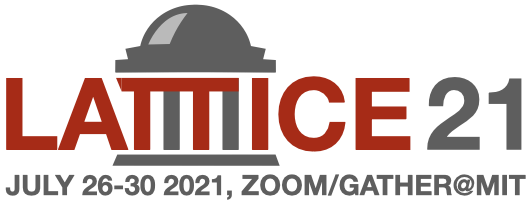Speaker
Description
We provide strong evidence that the asymptotically free (1+1)-dimensional non-linear O(3) sigma model can be regularized using a quantum lattice Hamiltonian, referred to as the "Heisenberg-comb", that acts on a Hilbert space with only two qubits per spatial lattice site. The Heisenberg-comb consists of a spin-half anti-ferromagnetic Heisenberg-chain coupled anti-ferromagnetically to a second local spin-half particle at every lattice site. Using a world-line Monte Carlo method we show that the model reproduces the universal step-scaling function of the traditional model up to correlation lengths of 200,000 in lattice units and argue how the continuum limit could emerge. We provide a quantum circuit description of time-evolution of the model and argue that near-term quantum computers may suffice to demonstrate asymptotic freedom.
